Leah Pistorius
October 31, 2024
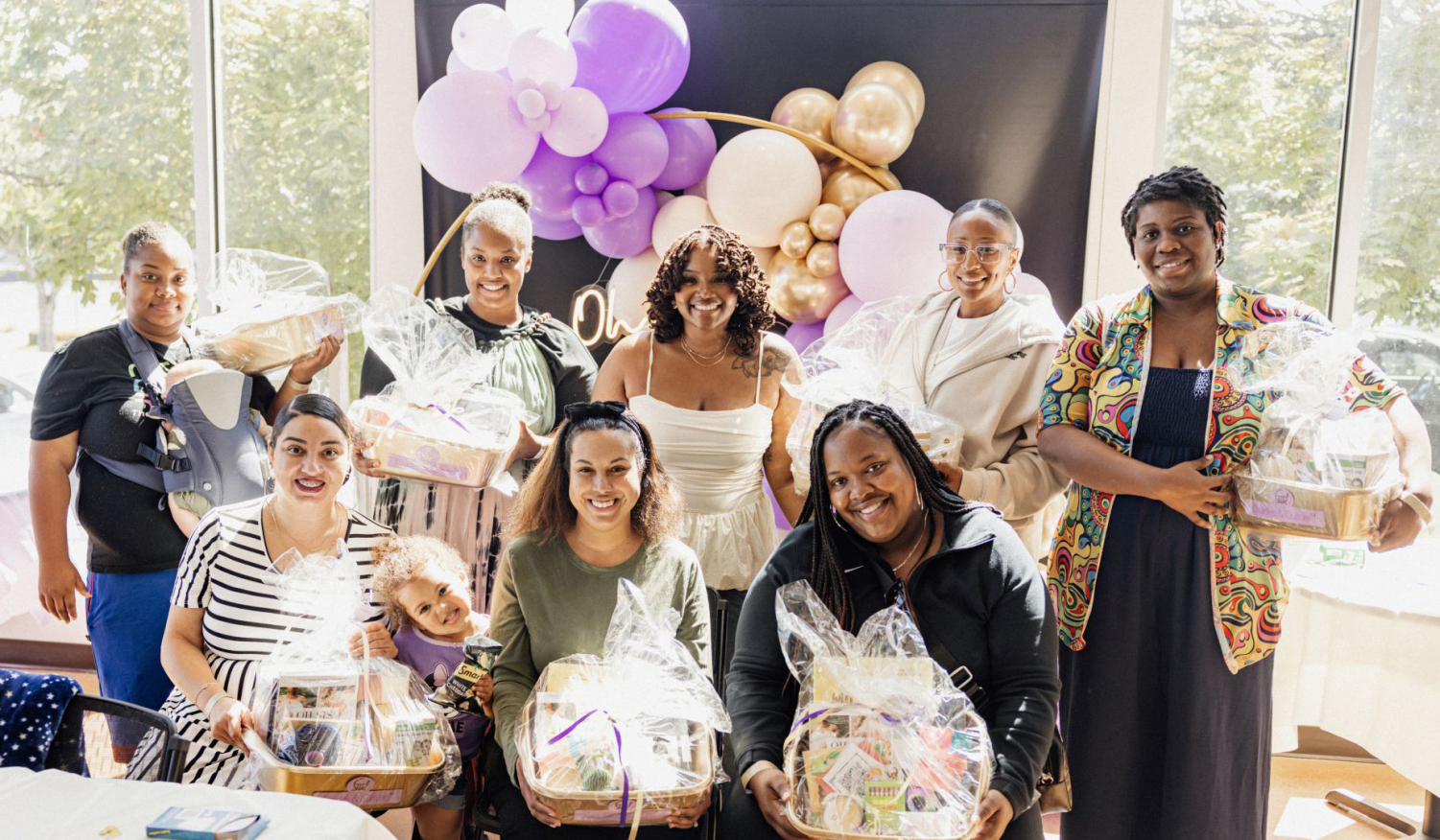
With the goal of advancing Black maternal health and health equity, Human Centered Design & Engineering PhD candidate Leslie Coney is merging academic research with community outreach. Through her community baby shower event, Cradles & Culture, Coney brought Washington State Black birthing people and their families together to celebrate new life while providing crucial resources and building networks of support.
Black birthing people in the United States face maternal mortality rates that are three to four times higher than those of their white counterparts. Over 60% of these deaths are preventable, yet systemic barriers remain. “My work focuses on addressing these disparities by engaging with the community to design and develop innovative solutions,” Coney explains. Her goal is to advance access to reliable information, promote racially concordant care, and strengthen support systems for Black birthing people and their families. Hosting events like Cradles & Culture is one way Coney is addressing these health inequities directly.
Origins of the idea: community, celebration, and access
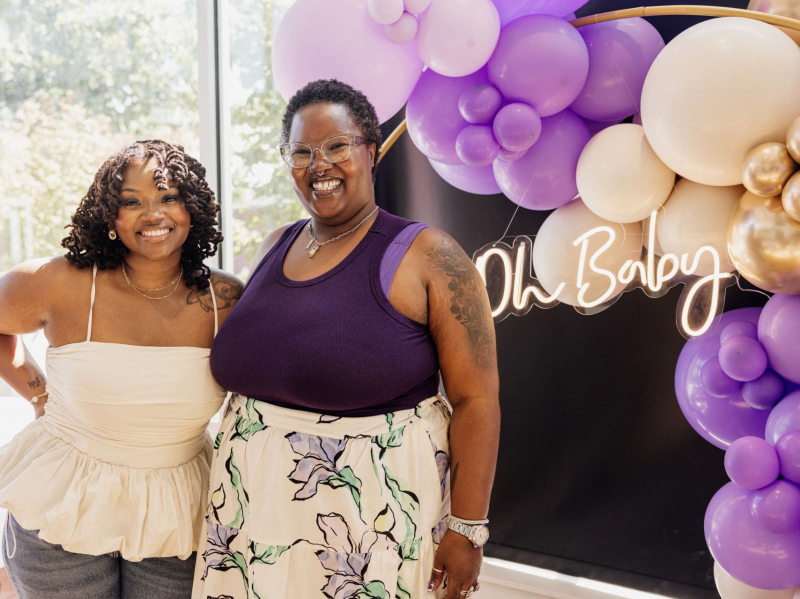
HCDE PhD candidate Leslie Coney, left, with community partner Jazmin Williams, Founder of BLKBRY, at the inaugural Cradles & Culture community baby shower in August 2024.
Coney first discovered the concept of a community-centered baby shower about two years ago. She was inspired by her research, which showed that many existing community baby showers felt more like resource fairs than true celebrations of parenthood, community, and life. “In the Black community, baby showers are often significant cultural events,” she explains, recalling her own experiences of joyous gatherings and community support. This inspired her to create a unique event that blended cultural celebration with tangible support.
This community baby shower didn’t just provide the essentials, like gift baskets for new moms and parents and items for both pregnancy and postpartum stages, it also offered educational resources from local organizations dedicated to reproductive health. From the food to the gift baskets and the event services, all elements came from Black-owned or Black-centered entities. Coney emphasizes that Cradles & Culture was built on a “For Us, By Us” model, centering and supporting Black-owned businesses while addressing the unique needs of Black birthing people.
Coney’s vision was made possible through support from the University of Washington’s Black Opportunity Fund. Managed by the Office of Minority Affairs & Diversity, this fund is dedicated to uplifting the lives, creativity, and brilliance of UW Black students, faculty, and staff.
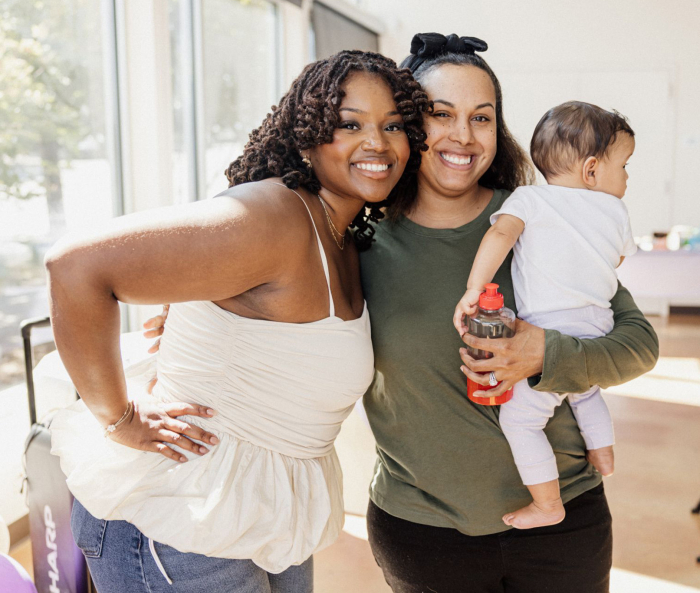
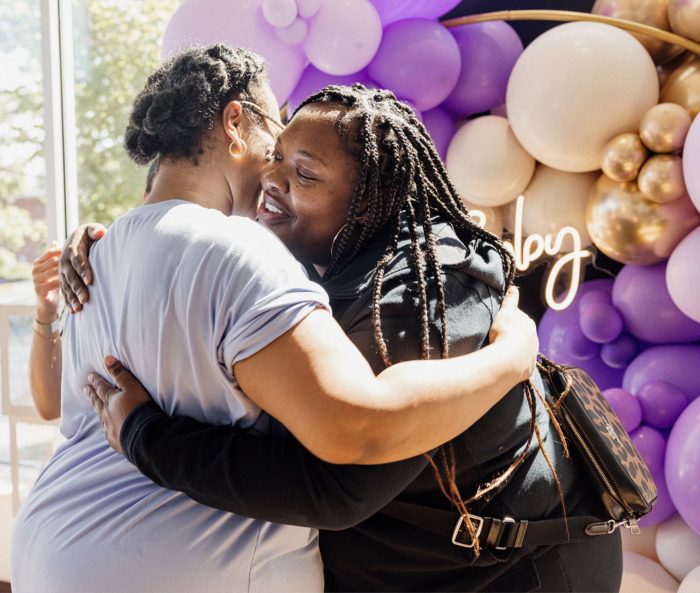
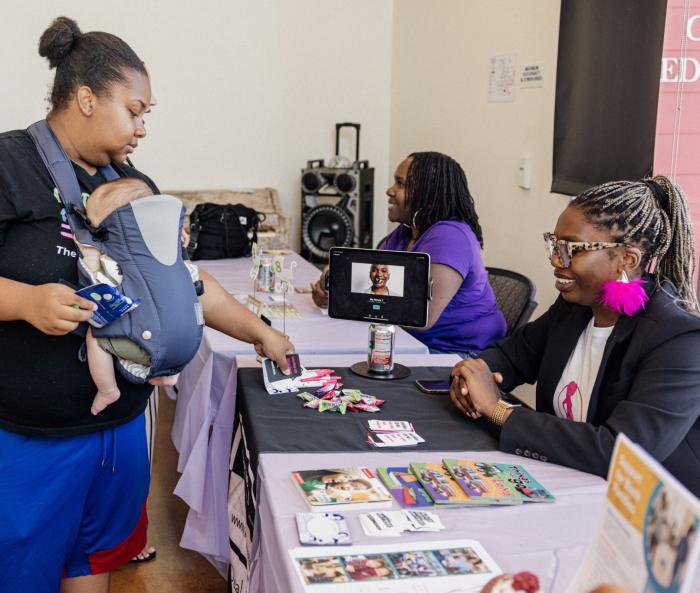
Insights and impact on research
For Coney, the community baby shower wasn’t just an event, it was a manifestation of her research’s goals and aspirations. “Since the start of my PhD journey, I've always aimed to push the limits of traditional academic work,” she says.
This experience has not only strengthened her commitment to her research but also opened new avenues for furthering her work. She hopes to see Cradles & Culture adopted in Black communities across the country, as a way to provide crucial resources and information in a welcoming, culturally rich atmosphere. “My research goes beyond studies, data analysis, publications, and presentations—it’s a chance to deeply understand my community and actively address their needs,” Coney said. “Seeing this vision come to life was incredibly surreal and deeply emotional, as I poured my heart into every single detail.”
Looking ahead
Coney’s community outreach work demonstrates the power of bridging HCDE research with real-world impact. By creating spaces like Cradles & Culture, she hopes to inspire similar initiatives that foster community support, celebrate Black culture, and promote maternal health equity. Her ultimate goal is to see a future where no birthing person is at risk due to preventable disparities and where Black families are supported, informed, and empowered every step of the way.